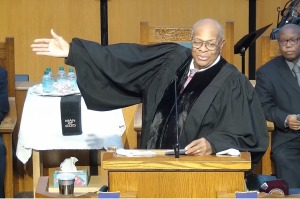What Parents Can Do When College Students Lose Faith
On an ABC ''Good Morning America'' broadcast earlier this month, a parenting expert suggested that when students lose faith while in college, parents can help by letting them find their own spiritual path.
NEW YORK – On an ABC "Good Morning America" broadcast earlier this month, a parenting expert suggested that when students lose faith while in college, parents can help by letting them find their own spiritual path. Many Christian leaders, however, warn against such parental advice.
On the Dec. 6 showing, the ABC news broadcaster said, "So when kids stumble, how can parents help? Many experts say it's important to let them make mistakes so they can find their own spiritual path.” She attributed "Good Morning America" parenting expert Anne Pleshette Murphy, who asked people to be optimistic and look on the brighter side.
"At least 76 percent of college undergraduates want to have a spiritual life,” according to Murphy.
Christian leaders, however, say that parents and church leaders should not only hold onto the students, but also give them all the tools needed to defend their faith before they go off to college.
Focus on the Family's Teen Apologetics Director Alex McFarland has been involved in youth ministry for the last 16 years. He says students are generally ill-equipped to fend for their Christian faith because they lack a good understanding of the facts behind Christianity – scientific, historical, or logical.
According to McFarland, "Teens have a sincere child-like faith but have not been exposed to good apologetics," which he says is "so necessary to being able to defend their faith."
He warns parents, "I have counseled with many a distraught, even heartbroken, family, who spent 18 years raising a child in the ways of God only to have that faith demolished through four years at a secular university."
Studies have shown that when students lack good defenses, their faith erodes. And two-thirds will forsake Christianity by their senior year of college. On the other hand, solid faith helps students in all aspects of life.
According to Religion News Service, a survey of over 3,000 teens revealed that those having a consistent Christian faith with a logical understanding of what that means, are likely to do better in school, feel better about themselves, shun alcohol, drugs and sex, care more about the poor, and will make moral choices based on what is right rather than what would make them happy.
Tony Arnold, media director of Campus Crusade for Christ, is concerned that Christian parents may be too forceful with their children on matters of faith. He urges parents to love their children no matter their spiritual stage.
"We, as parents, need to realize that our children, as young adults, will make their own choices," says Arnold. "Just as God accepts us, we need to accept our children even when they are straying from Him."
"Loving our children doesn’t mean we compromise on our Christian convictions," he adds. "We don’t want our children to wander, but we can’t force them into following Him."
In the ABC broadcast earlier this month, ''Good Morning America'' highlighted Ashley Parrish, a student at the University of Georgia.
From the day she was born, Ashley Parrish was taught to put God first in her life. She attended a Christian school, did missionary work in Mexico, and gave youth sermons at her local church, but after entering college, she admitted to liking the taste of "freedom," and "went crazy" partying and "having fun with the boys."
Her parents said they prayed for her.
"You really, really do have to trust that God is gonna be there and take care of them because you can’t be there all the time for them," said Craig Parrish, Ashley’s father.
But Summit Ministries Founder David Noebel, who authored the classic seminary text Understanding the Times, is unconvinced.
There is a danger to allowing secular professors and ideology to confuse and challenge the students, he says.
"We need to settle our Christian young people in their Christian faith and not just let them be fair game for their higher educational professors, who are not Christian," Noebel states. "If they go off to college, and they don't have a strong Christian worldview, they will be picked off very quickly because the opposition has a worldview.”
Summit Ministries offers a program that teaches all six current worldviews for just two weeks. The worldviews taught are Christianity, Islam, secular humanism, Marxist humanism, postmodernism, and cosmic humanism, and knowing them all enables students to defend Christianity in secular classrooms. Noebel suggests the course as an option for both high schoolers and college students who may be doubting Christianity.
Another option is McFarland's book STAND, which encourages parents, youth pastors, and Christian leaders to teach youths the reasons "why we believe what we believe.”





























